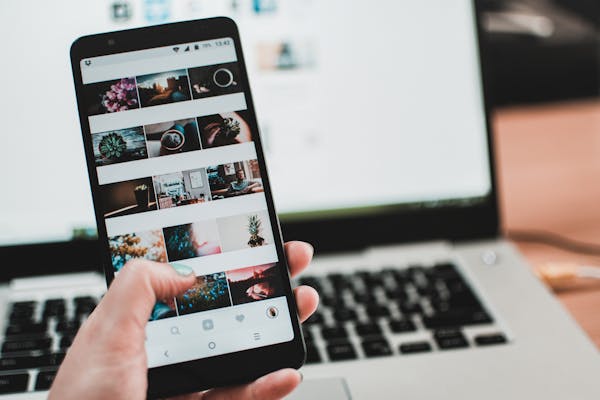Understanding the Mental Health Toll of the Perfect Instagram Feed

In the digital age, Instagram has become more than just a platform for sharing snapshots of our lives. It’s a stage where individuals meticulously craft and curate their personas, striving for the elusive “perfect” feed.
However, behind the polished veneer of filters and carefully composed shots lies a darker reality: the toll on mental health. In this article, we’ll discuss the psychological repercussions of chasing the perfect Instagram aesthetic and explore the growing awareness of its impact on well-being.
The Pursuit of Perfection
In the quest for the ideal Instagram feed, users often find themselves trapped in a cycle of comparison and self-criticism. Scrolling through meticulously curated feeds, it’s easy to forget that what appears flawless is often meticulously staged or heavily edited.
A study published by the NIH notes that this perpetual comparison can lead to feelings of inadequacy. This fosters a culture of constant striving for unattainable standards. Despite its glossy exterior, the reality behind the perfect feed often conceals the pressures and anxieties faced by those seeking validation online.
The Facade of Authenticity
Despite Instagram’s emphasis on authenticity, the platform often perpetuates a distorted reality where flaws are airbrushed away. The pressure to present a flawless image can be overwhelming, leading individuals to curate a carefully crafted facade of perfection.
However, beneath the surface, many struggle with self-doubt and insecurities hidden behind the facade of a picture-perfect life. The dichotomy between authenticity and aspiration creates a paradoxical environment where genuine connection is often overshadowed by the pursuit of likes and followers.
Legal Ramifications and Social Responsibility
As awareness of the negative effects of social media grows, there has been a push for greater accountability from platforms like Instagram. TruLaw notes that lawsuits like the one accusing negligence in addressing harmful online content underscore the importance of prioritizing user well-being on platforms.
As per a June 2024 update by the Lawsuit Information Center, there are 475 lawsuits pending in the social media addiction litigation.
These Instagram lawsuits highlight the complexities of navigating the intersection between free speech and the responsibility of platforms to protect their users. Despite the challenges, there is an increasing expectation for social media companies to implement measures that safeguard the mental health of their users.
This promotes a more positive online environment. As Instagram and other platforms face mounting pressure, the outcome of these lawsuits could set significant precedents for the future regulation of social media.
Impact on Self-Image and Identity
The constant barrage of curated content on Instagram can warp perceptions of self-image, leading individuals to question their worth. The obsession with likes and followers can distort one’s sense of identity, tethering self-esteem to online metrics of popularity.
According to The Conversation, this fixation on external validation can erode self-confidence, fueling a cycle of comparison and self-doubt. Behind the carefully curated facade, many individuals grapple with feelings of inadequacy and insecurity.
Navigating the Digital Landscape
When utilized carefully, Instagram can be a source of creativity, inspiration, and connection despite its drawbacks. By fostering a more balanced relationship with social media, users can mitigate the negative effects of comparison culture.
Cultivating authenticity and self-care in the digital realm is essential for promoting mental well-being. Ultimately, we have the ability to influence our online experiences as we navigate the complicated landscape of the digital realm.
FAQs
What is social media pressure for perfection?
Social media pressure of perfection refers to the pervasive expectation to present an idealized version of oneself online. This causes self-doubt and feelings of inadequacy, and users feel compelled to curate flawless images and lifestyles to garner validation and approval from others.
What causes body image issues on social media?
Body image issues on social media are often fueled by the constant exposure to unrealistic beauty standards perpetuated by influencers, celebrities, and curated content. Comparison with idealized images can trigger feelings of dissatisfaction and inadequacy, contributing to negative self-perception and body dissatisfaction.
What was Instagram accused of?
Instagram was accused of negligence in addressing harmful content and promoting unrealistic beauty standards in a lawsuit. The site was accused of creating an atmosphere that encouraged mental health problems and not doing enough to shield users from harmful information.
In conclusion, the perfect Instagram feed highlights the complex relationship between digital presence and mental health. Legal battles emphasize platform accountability, urging users to navigate a landscape of comparison and self-doubt.
Yet, amidst challenges lies an opportunity for introspection. By fostering authenticity and self-care, users can reclaim agency over their digital experiences, forging a healthier relationship with social media. In this evolving narrative, the power to shape our online interactions lies within our grasp.



